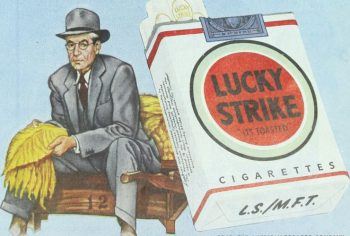Nan Enstad in the Boston Review:
 Capitalism, like the United States itself, has a mythology, and for five decades one of its central characters has been the nineteenth-century maverick cigarette entrepreneur, James B. Duke. Duke’s risk-taking investment in the newfangled machine-made cigarette, so the story goes, displaced the pricey, hand-rolled variety offered by his stodgy competitors. This, in turn, won Duke control of the national, and soon global, cigarette market. Repeated ad nauseam in business and history journals, high school and university curricula, popular magazines, and websites, the story has taught that disruptive innovation drives capitalist progress.
Capitalism, like the United States itself, has a mythology, and for five decades one of its central characters has been the nineteenth-century maverick cigarette entrepreneur, James B. Duke. Duke’s risk-taking investment in the newfangled machine-made cigarette, so the story goes, displaced the pricey, hand-rolled variety offered by his stodgy competitors. This, in turn, won Duke control of the national, and soon global, cigarette market. Repeated ad nauseam in business and history journals, high school and university curricula, popular magazines, and websites, the story has taught that disruptive innovation drives capitalist progress.
The problem? The Duke story is false: mid-century business historians fabricated it to accord with the theory of creative destruction, developed by libertarian economist Joseph Schumpeter. For generations, we have learned from this myth to fetishize entrepreneurial innovation as the engine of capitalism, while missing Duke’s instrumental role in rampant corporate empowerment.
More here.
